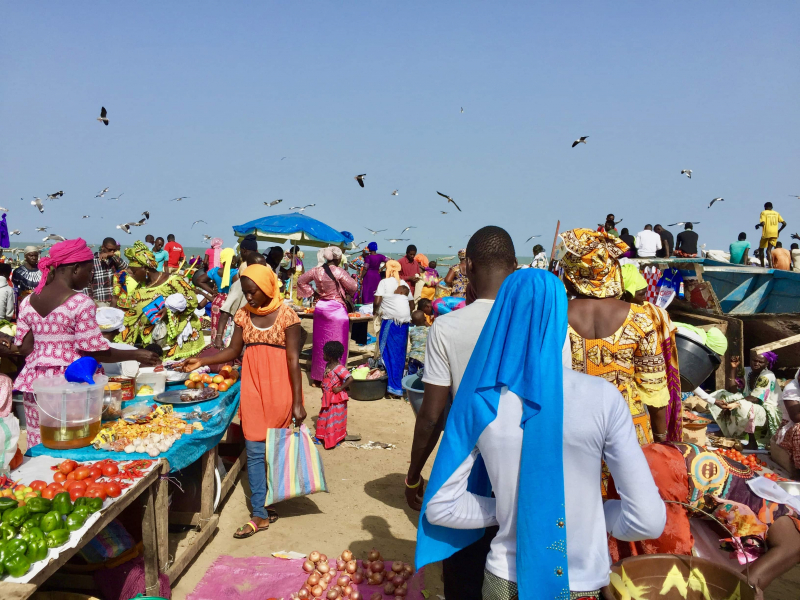Bargaining
Except in supermarkets and stores where the prices are marked, bargaining is the common practice when shopping in open markets and many shops. Vendors will not generally bargain on items that are commonly sold by the measure, e.g., a cup of sugar, the quantity of salt or spices, a kilo of meat, a cup of oil, etc. Vegetable and fruit prices, however, will vary according to their availability. In some cases, one might notice there are two price sets: one price for Gambians and another higher price for foreigners or tourists. The difference in price sets will not vary much with food items, but will for fabric, woodwork, craft, and other luxury items.
Many people feel justified in asking more from foreigners given the obvious economic disparity. Being able to use a local language in bargaining and describing merchandise is a great advantage and will delight vendors. However, there is a point at which a vendor will go no further and may become intransigent, and insulted if one persists in undercutting the last stated price. Prices may vary from day to day depending on the vendor’s mood as well as the approach of the customer. Bargaining can be fun and is a great way to make conversation with Gambians and practice language skills.
Vendors will also feel offended if you bargain for an item with no intention of buying it. With regular taxis, the fare is fixed but sometimes bargainable. GPTC buses have fixed fares for every destination. One can also bargain when hiring a taxi, or securing the services of a tailor, smith, carpenter, or mason.












